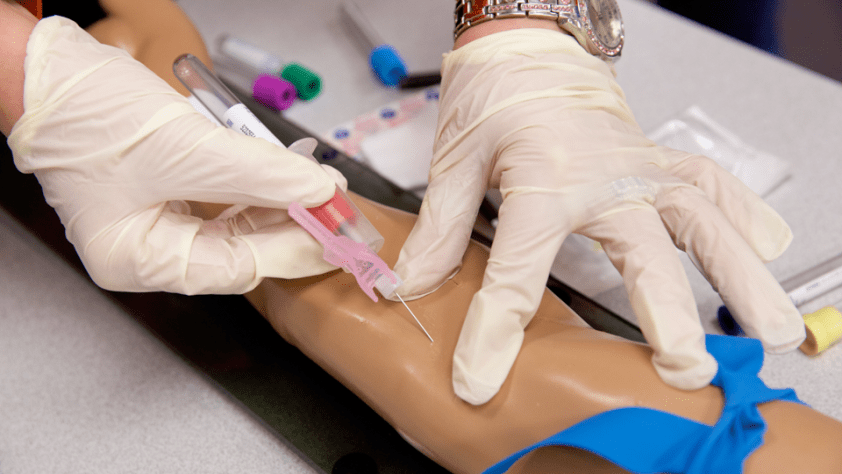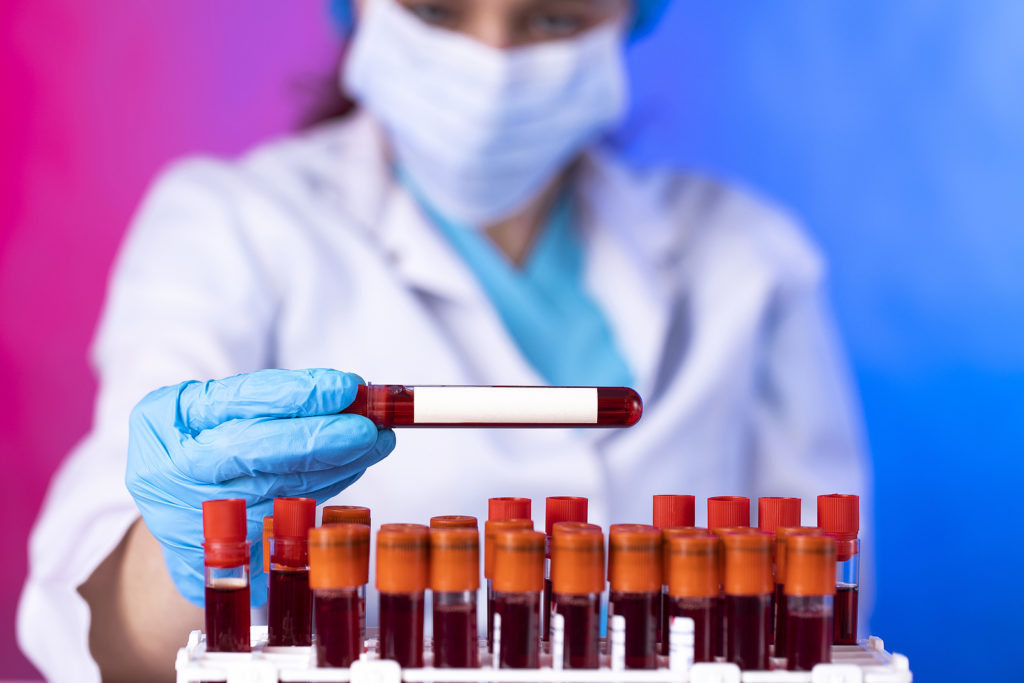The Course to Qualification: Recognizing the Phlebotomy Educating Course Trip and Its Importance
As you think about the path to certification in phlebotomy, it is very important to understand the role you'll play in healthcare. Your training will cover important skills, from blood collection techniques to patient interaction. Each component of the program prepares you for the challenges in advance. But what exactly does the trip require, and why is qualification so vital for your future occupation? Let's explore these questions better.

The Role of Phlebotomists in Medical Care
Phlebotomists play a necessary role in the healthcare system, acting as the crucial link between clients and essential analysis testing. You'll perform blood attracts, making sure examples are gathered accurately and safely. Your knowledge aids in diagnosing clinical problems, keeping an eye on health, and assisting treatment decisions.
In your daily interactions, you'll require to develop count on with people, making them feel comfortable during what could be a stressful experience. You're accountable for classifying and handling samples very carefully to avoid contamination or errors, which might influence examination results.
Yet, you'll usually work alongside physicians and registered nurses, communicating crucial info concerning patients' conditions. Your function is essential in maintaining the workflow in health care settings, making sure prompt and precise outcomes. By understanding your abilities, you add meaningfully to patient care, making you a vital component of the clinical group. Welcoming this responsibility is key to your success as a phlebotomist.
Overview of Phlebotomy Training Programs
When exploring phlebotomy training programs, you'll find various kinds created to fit various routines and learning styles. Each program helps you develop crucial abilities like blood collection and individual interaction. Understanding these options is vital to selecting the ideal path for your occupation.
Kinds Of Educating Programs
Several kinds of training programs are readily available for those looking to become proficient in phlebotomy. Furthermore, some health centers and clinics use on-the-job training programs, giving useful experience while you find out. Whatever path you choose, each program aims to furnish you with the essential skills for a successful phlebotomy occupation.

Secret Abilities Created
Grasping phlebotomy requires a collection of essential abilities that are established through thorough training programs. Furthermore, communication abilities are fundamental; you'll require to communicate with people, describe procedures, and placed them at ease. Each of these abilities is important for your success as a qualified phlebotomist, making you an important property in any medical care setting.
Key Parts of a Phlebotomy Course
In a phlebotomy program, you'll focus on essential topics that prepared for your future profession. You'll participate in hands-on training that permits you to apply what you have actually found out in real-world settings. Both the curriculum and practical experience are important for your success as a phlebotomist.
Core Educational Program Overview
While going after a phlebotomy training program, you'll experience a core curriculum developed to outfit you with fundamental skills and understanding. Phlebotomy school. This educational program typically includes composition and physiology, concentrating on the circulatory system and comprehending blood elements. You'll additionally find out about different sorts of blood collection techniques, including venipuncture and capillary leak strategies
Additionally, infection control and safety and security methods are necessary elements, ensuring you know just how to keep a sterilized environment. You'll examine patient communication, highlighting interaction and compassion, which are important for relieving client anxiety.
Hands-On Training Experience
Obtaining hands-on experience is an indispensable component of your phlebotomy training course. This sensible training allows you to use what you've discovered in a real-world setup, improving your abilities and confidence. Phlebotomy Training Course.
In addition, you'll get the opportunity to communicate with people, which is vital for creating your communication skills. This mix of technological efficiency and social abilities is important for your success as a certified phlebotomist. Eventually, hands-on training is where concept fulfills practice, solidifying your expertise and preparedness for accreditation.
Qualification and Licensing Needs
Before you can start your career in phlebotomy, it is crucial to comprehend the certification and licensing requirements that vary by state. Most states call for phlebotomists to hold a qualification from an identified company, such as the National Phlebotomy Association or the American Society for Professional Pathology. These qualifications normally include passing a test that checks your expertise and abilities in the area.
In enhancement to certification, some states have particular licensing demands. You may require to complete a specific variety of hours in professional technique, send evidence of training, or go through a history check. It is necessary to investigate your state's laws to make certain you fulfill all needed requirements.
Staying notified regarding these requirements not only helps you secure a setting however additionally enhances your integrity as an expert. By fulfilling these requirements, you'll be well on your means to a successful occupation in phlebotomy.
Hands-On Training and Practical Experience
Hands-on training and functional experience are crucial parts of your phlebotomy education and learning, as they enable you to apply academic understanding in real-world circumstances. During your training, you'll participate in view it supervised venipuncture, learn correct strategies, and end up being knowledgeable about numerous blood collection devices. This direct participation is essential for developing your confidence and refining your abilities.
You'll function closely with seasoned experts who can lead you with the nuances of individual interaction and example handling. Each method session not only reinforces your understanding however also prepares you for the busy atmosphere of medical care setups.
Additionally, several programs incorporate professional turnings, enabling you to experience diverse setups, from health centers to outpatient centers. This direct exposure assists you adapt to different obstacles and client demands, ensuring you're well-prepared for your future role. Accept these possibilities, as they're important to coming to be a skilled and caring phlebotomist.
Challenges Dealt With Throughout Training
While obtaining hands-on experience is essential, it's essential to acknowledge the difficulties that can develop throughout your phlebotomy training. In addition, understanding the skills required for blood draws takes practice; you may have a hard time with method at first.
Time monitoring can additionally be a difficulty, as harmonizing concept, sensible sessions, and individual dedications can really feel intimidating. You may face varying learning paces amongst your peers, leading to sensations of insecurity if you think you're falling back. Finally, adjusting to the different personalities of instructors can be challenging, as each might have an unique training design.
Recognizing these obstacles early can prepare you for success and assist you establish resilience throughout your training journey.
Career Opportunities After Qualification

As you gain experience, you may also think about specializing in locations like pediatric or geriatric phlebotomy, providing to specific client demands. Some phlebotomists choose to progress their jobs by ending up being laboratory service technicians or seeking further education in medical care fields.
Additionally, your accreditation can bring about roles in training or overseeing brand-new phlebotomists, allowing you to share your understanding. With the medical care sector constantly growing, your abilities will certainly constantly remain in demand, paving the method for a steady and meeting job. Welcome the helpful hints possibilities awaiting you!
Frequently Asked Concerns
What Is the Regular Duration of a Phlebotomy Educating Training Course?
Phlebotomy training programs generally last around four to 8 weeks. You'll take part in hands-on method, classroom guideline, and online knowing. Completing this training prepares you for accreditation and a rewarding career in healthcare.
Are Online Phlebotomy Courses Available?
Yes, online phlebotomy courses are available. They offer flexibility and convenience, allowing you to study at your own rate. Just confirm the program is certified to satisfy certification requirements and gain valuable abilities for your job.
Just How Much Does Phlebotomy Training Commonly Price?
Phlebotomy training normally sets you back in between $700 and $2,500, relying on the program and area. You must think about factors like course size, included materials, and hands-on experience when picking the ideal training for you.
What Are Typical Prerequisites for Phlebotomy Training?
Common requirements for phlebotomy training typically consist of a senior high school diploma or GED, immunizations, and a background check. Some programs may additionally require standard healthcare expertise or accreditations, guaranteeing you're prepared for hands-on training.
Can I Function While Completing My Phlebotomy Training?
Yes, you can work while finishing your phlebotomy training. Numerous pupils balance tasks with their researches, but make particular to manage your time successfully to guarantee you satisfy both work and training dedications successfully.